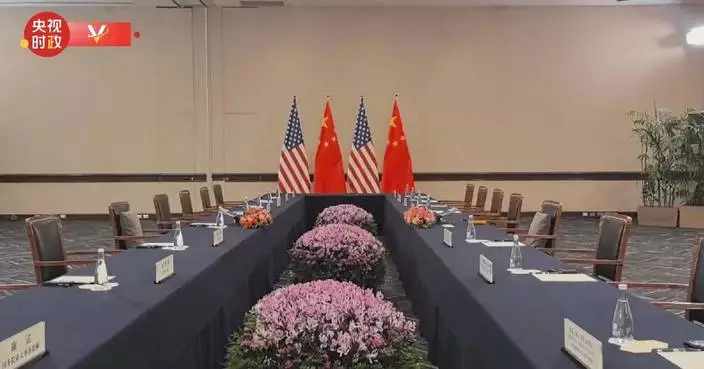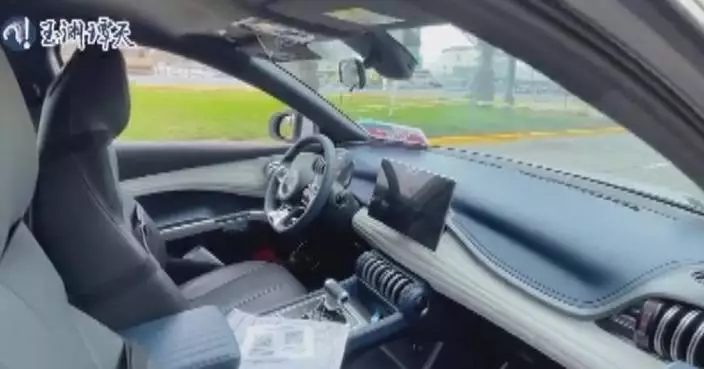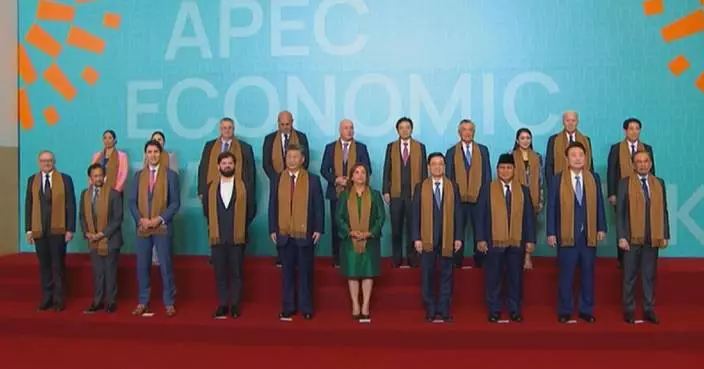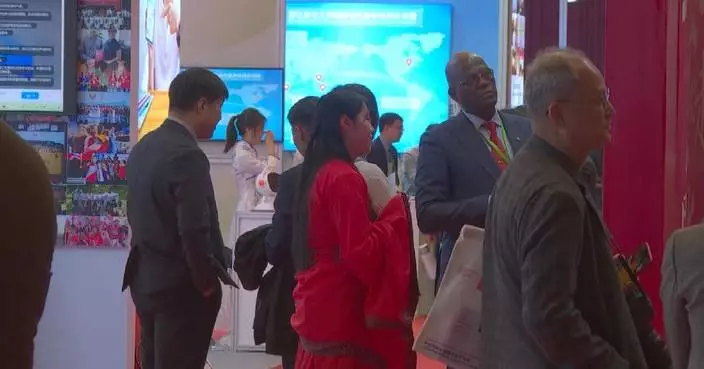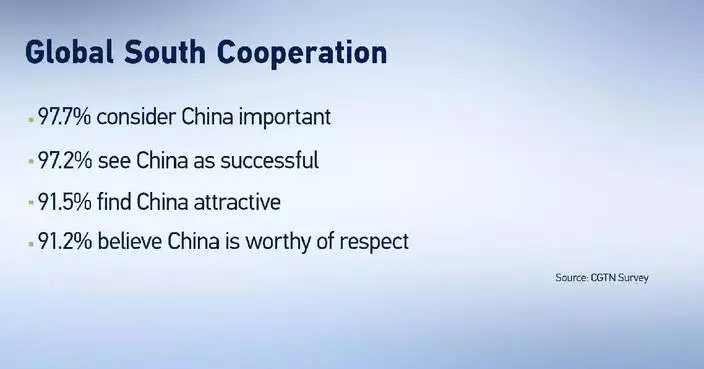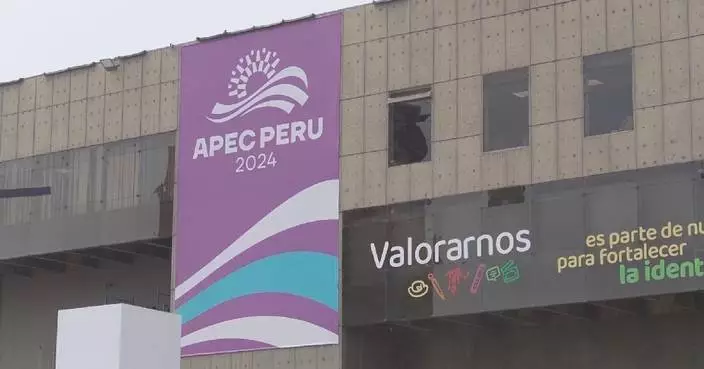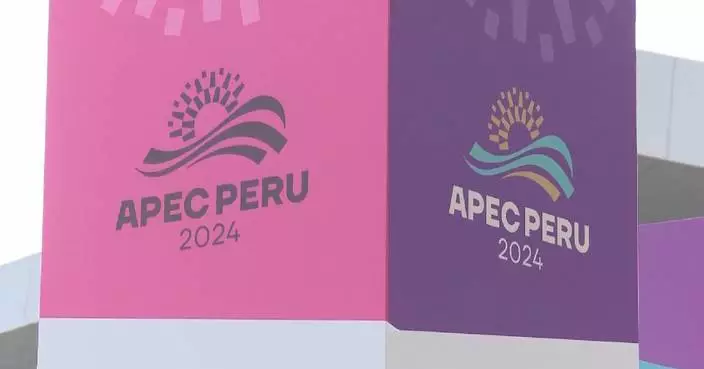U.S. President Joe Biden arrived at the venue for his meeting with Chinese President Xi Jinping in Lima, the capital of Peru, on Saturday afternoon local time.
The bilateral meeting is taking place on the sidelines of the two-day 31st APEC Economic Leaders' Meeting, which concludes on Saturday.
The Asia-Pacific Economic Cooperation (APEC) began in 1989 as an informal dialogue group, and has since become the premier forum for facilitating economic growth, cooperation, trade and investment across the Asia-Pacific region. APEC currently has 21 members, including the United States and China, the two largest economies in the world, and other major economies in Southeast Asia.
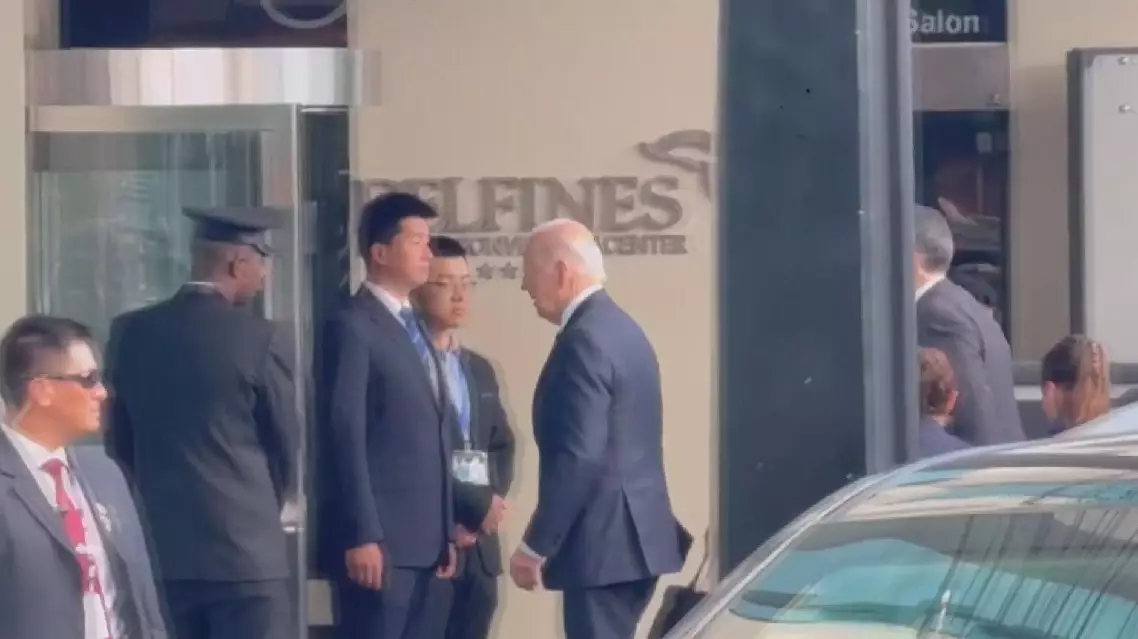
Biden arrives at venue for meeting with Xi in Lima
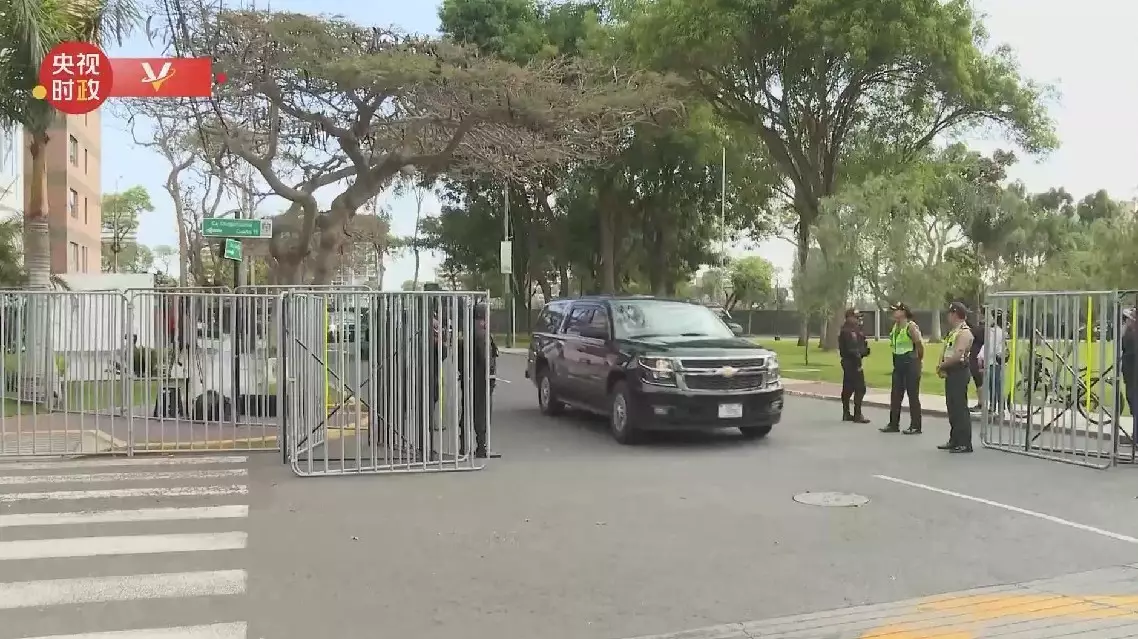
Biden's motorcade arrives at venue for meeting with Xi in Lima
Chinese President Xi Jinping called on the Asia-Pacific region to shoulder the responsibilities of the times and jointly promote development while addressing the 31st APEC Economic Leaders' Meeting in the Peruvian capital Lima on Saturday. In his speech, Xi pointed out that over the decades, APEC has been instrumental in leading the Asia-Pacific to great success in development, prosperity and connectivity, making the region the most dynamic economy and primary engine of global economic growth.
The world today is gripped by accelerating transformations unseen in a century, and Asia-Pacific cooperation is confronted with rising geopolitical challenges such as unilateralism and protectionism, Xi said.
At this historical crossroads, Xi said Asia-Pacific countries should carry greater responsibilities on their shoulders, and act in solidarity and cooperation to meet these challenges, so as to promote the building of an Asia-Pacific community with a shared future, and start a new era in Asia-Pacific development.
To this end, Xi put forward three proposals.
First, he proposed building an open and interconnected paradigm for Asia-Pacific cooperation, and called for tearing down the walls impeding the flow of trade, investment, technology and services.
He stressed the need to stay committed to multilateralism and an open economy, firmly uphold the multilateral trading system with the World Trade Organization at its core, advance regional economic integration and connectivity, and ensure stable and smooth industrial and supply chains.
Noting that a new document to guide the Free Trade Area of the Asia-Pacific (FTAAP) process would be adopted by APEC on Saturday, the Chinese president expressed the belief that this would give new impetus to the efforts toward an open Asia-Pacific economy.
Xi said China always promotes reform through opening up, voluntarily subscribes to high-standard international economic and trade rules, and adopts proactive measures for further opening up. He also stressed that China is willing to work with all parties to discuss trade agreements in digital and green areas, and steadily expand the globally-oriented network of high-standard free trade areas.
Second, Xi called for making green innovation a catalyst for the Asia-Pacific.
He said it is necessary to firmly seize the opportunities presented by the new round of sci-tech revolution and industrial transformation, and strengthen exchanges and cooperation in artificial intelligence, quantum information, life and health, and other frontier areas, noting this requires fostering an open, fair, just, and non-discriminatory innovation ecosystem and promoting the leapfrog development of productive forces across the Asia-Pacific.
Emphasizing building a clean and beautiful Asia-Pacific, Xi said the region should prioritize ecological protection, promote resources conservation and their efficient use as well as green and low-carbon development. He advocated for a coordinated digital and green transformation and development to create new momentum and new drivers for Asia-Pacific development.
He added that China is developing new quality productive forces in light of actual conditions and deepening cooperation with interested parties on green innovation. China will launch a Global Cross-Border Data Flow Cooperation Initiative, and seek deeper cooperation with other parties to promote efficient, convenient and secure cross-border data flows, he said.
Third, Xi proposed upholding a universally beneficial and inclusive vision for Asia-Pacific development.
He emphasized the need to strengthen economic and technological cooperation, increase support for developing economies and disadvantaged groups, and work together to grow the pie and distribute it equitably to allow more economies and people to benefit from development.
China will advance initiatives through the APEC platform on increasing residents' income and promoting the industrial cluster development of small- and medium-sized enterprises, for the purpose of bringing about universally beneficial and inclusive development of Asia-Pacific economies, he said.
Xi noted that reform and opening up is a historic process in which China and the world achieve development and progress together, and stressed that China's further development will provide new opportunities for the Asia-Pacific region and the world at large, adding that China welcomes all parties to continue riding the "express train" of its development and grow together with the Chinese economy.
Peruvian President Dina Boluarte chaired the 31st APEC Economic Leaders' Meeting, which was held under the theme "Empower, Include, Grow".
The meeting issued three outcome documents: a statement of the APEC leaders, a statement on the New Look to Advance the Free Trade Area of the Asia-Pacific, and the Lima Roadmap to Promote the Transition to the Formal and Global Economy.
Xi attended a welcome banquet for the APEC leaders' meeting on Friday evening.
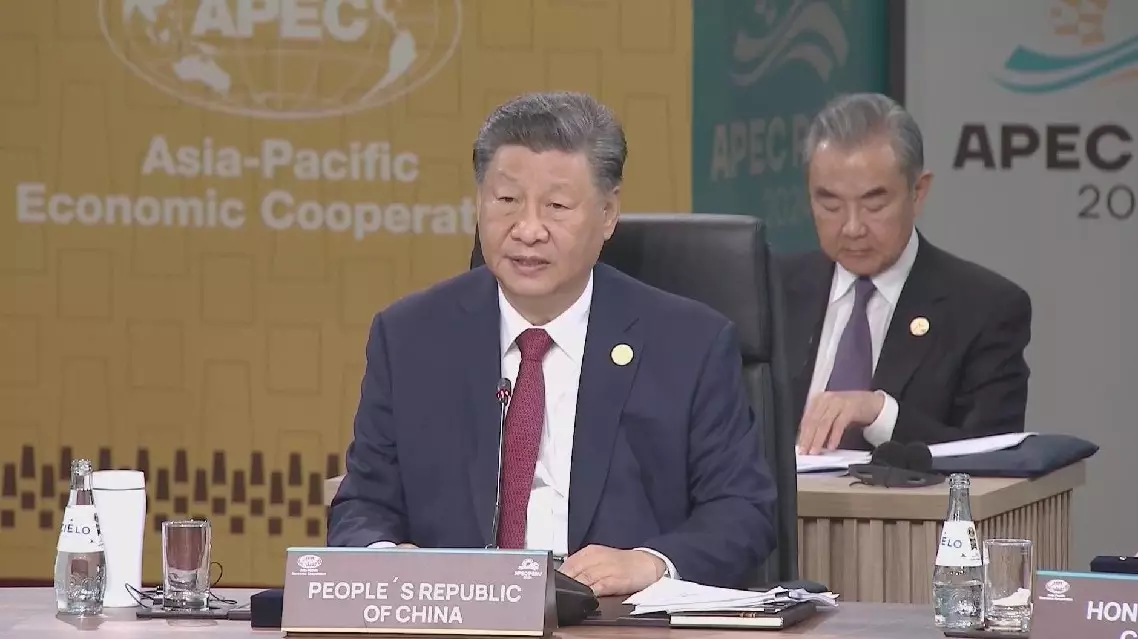
Xi makes key proposals for jointly promoting Asia-Pacific development





